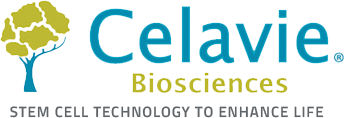Celavie Biosciences Product Development
Celavie is currently conducting preclinical trials of OK99 undifferentiated stem cells in animal models of cerebellar and spinocerebellar ataxias. As the pathological mechanisms of the most of neurodegenerative diseases share fundamental features, these treatments can be used with minor modifications for Huntington’s disease, Friedreich’s ataxia (FA), amyotrophic lateral sclerosis (ALS), epilepsy, and other disorders.
| Disease | Candidate | Preclinical | Phase I | Phase II | Phase III |
|---|---|---|---|---|---|
| Parkinson’s Disease | Human | ||||
| Cerebellar Ataxias | Human | ||||
| Epilepsy | Human |
As a part of preclinical safety evaluation of OK99 cells, Celavie examined immunogenicity of the stem cells in a same-species environment. Celavie contracted Seventh Wave Laboratories, LLC (Chesterfield, MO) to perform the study: “Does Intraparenchymal Injection of Canine Allogeneic Stem Cells into the Canine Brain Elicit Immune Response.”
Our canine stem cells that are derived in the same manner as human cells and express the same markers were transplanted into the brains of healthy beagles. The blood and brain tissue were examined for signs of immune reaction to the cells. No immune response to OK99 stem cells was detected.
Preclinical development of restorative treatment for spinocerebellar ataxias with OK99 Stem Cells
Celavie researchers are in the process of collecting preclinical data for FDA submission for OK99 as an orphan drug for Spinocerebellar Ataxias. The ataxic rats that received OK99 transplantation into the cerebellum, displayed significantly higher motor activity scores and sustained greater weights and longevities than control non-treated ataxic rats. Microscopic examination of the treated animals revealed that the transplanted stem cells displayed signs of purposeful migration and signs of neuronal development in the degenerated Purkinje cell layer. This study revealed that implanted Celavie stem cells reduced the ataxic symptoms and almost doubled life span in the treated animal. These data warrant a Phase I clinical study in patients with spinocerebellar ataxia and other associated neurodegenerative diseases.
Spinocerebellar ataxias (SCA) are rare, inherited genetic conditions that occurs in 1-5 people out of 100,000 people in the US. SCAs cause nervous system damage and movement problems. They lead to a different degree degeneration of the spinal cord, the peripheral nerves and an areas in the cerebellum that coordinate balance and movement. It often leaves patients wheelchair-bound. Some SCAs also cause inner organs’ damage and death. There is no known cure. Potential treatments for SCAs are eligible for FDA’s orphan drug status, which greatly speeds up approval.
The following two videos demonstrate the effects of OK99 injection on rats with a model of cerebellar ataxia. While the untreated rat is unable to move, the treated animal can run.
Two manuscripts, “Efficacy of Two Delivery Routes for Transplanting Human Neural Progenitor Cells (NPC) Into the Spastic Hans Wistar Rat, a Model of Ataxia,” and “Transplantation of human neural progenitor cells reveals structural and functional improvements in the spastic Han-Wistar rat model of ataxia” were published in Cell Transplantation Journal in February 2017 and in June 2017 correspondingly.
Learn More:
Download “Efficacy of Two Delivery Routes for Transplanting Human Neural Progenitor Cells (NPCs) Into the Spastic Han-Wistar Rat, a Model of Ataxia”
Treatments in the Pipeline
Celavie is currently conducting preclinical trials of OK99 undifferentiated stem cells in animal models cerebellar ataxia (effect of stem cell treatment on the animals’ longevity) in collaboration with California State University, Northridge. Our research plan includes preclinical studies using OK99 stem cells for animal models of epilepsy and Huntington’s disease.
In addition to OK99 allogeneic pluripotent stem cells, Celavie’s subsidiary, Celavet, is offering a faster path to market with cultured stem cell lines, including equine cells (OK100), canine cells (OK200), and feline cells (OK300).



